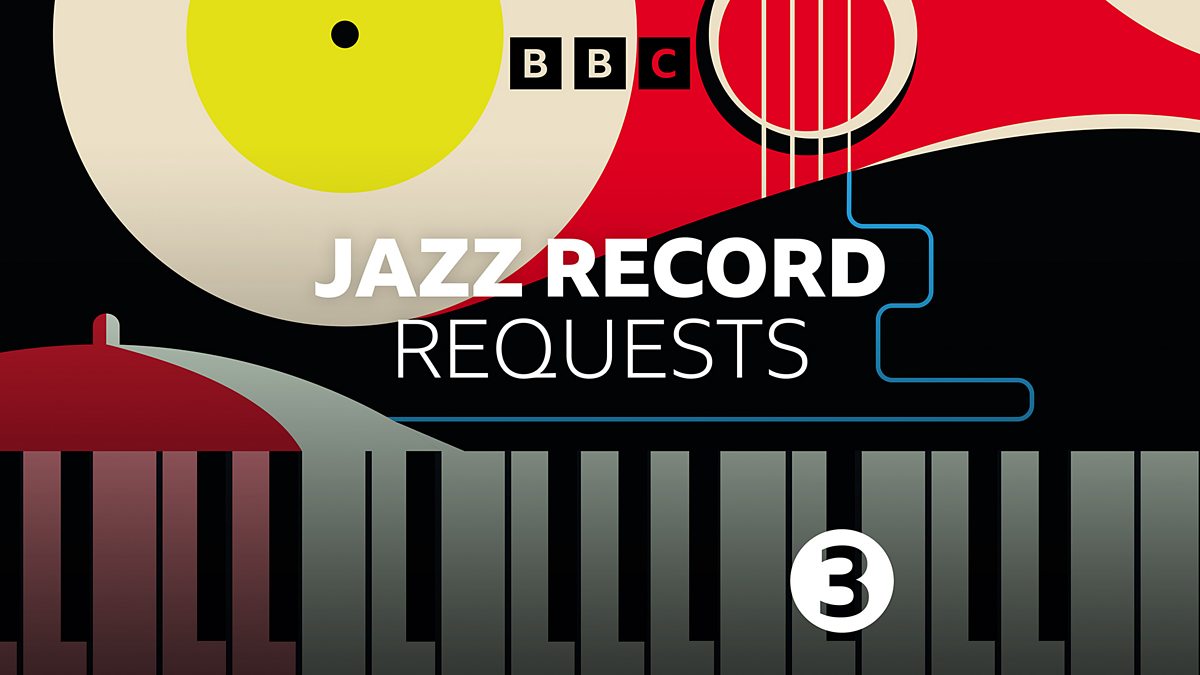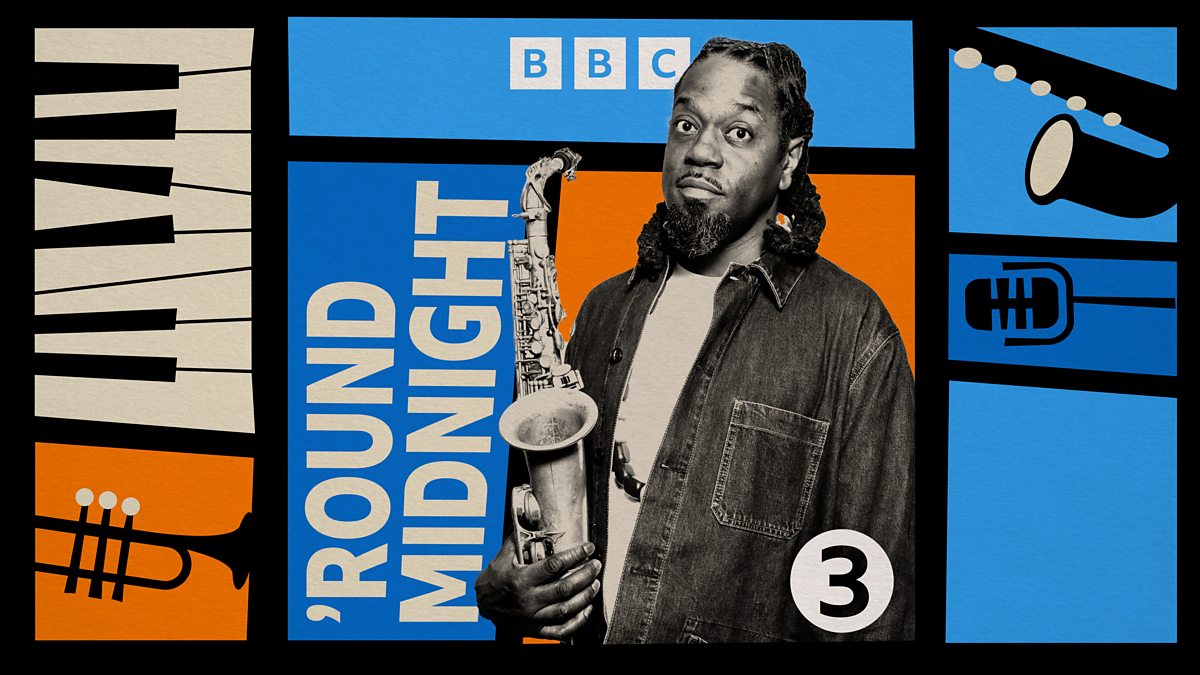A load in store of new names you've probably never heard of
Collapse
X
-
I see Alyn is playing Hoagy Carmichael's "Winter Moon" from the 1956 Johnny Mandel west coast session. It's a wonderful record and I've got an interview with Art Pepper (I think with Charles Fox) where he laughingly says that Carmichael would only let him play the alto solo if "he was behind a screen". He (HC) hated alto solos and initially said dump Pepper, "I'll whistle it instead!" Mandel intervened.
-
-
I liked that track, it reminded me of Warne Marsh.Originally posted by Serial_Apologist View PostMy guessing is that the clever if over-formulated piano on the final track, which evidently, going by available track listings, Alyn has not mentioned for understandable reasons, is Gareth Williams. All I can say is, I recognise his style.
*The Tim Garland track.
Comment
-
-
Me too - Tim was a great favourite of Calum's. I think there've always been influential people who get momentarily neglected because they themselves have moved on in creative terms, sometimes for a long period, because what was potentially influential, ie capable of being taken further, was pushed by others, but not by themselves. Think Stravinsky's Rite of Spring, whose potential huge numbers of modernistic composers immediately cottoned onto, by which time Stravinsky was composing totally different music; or Miles Davis in the period immediately preceding Silent Way (often known as "time-no-changes"): massively influential to this day, thereby proved more sustainable than the funk-rock phases Miles pursued to the end - as Ian will possibly agree. I've been noting a lot of notice being taken of the Warne Marsh generation by later generations seeking alternatives to post-Coltrane. Such more oblique approaches are less easy to grasp, being less prone to mannerisms à la Mike Brecker, say.Originally posted by BLUESNIK'S REVOX View Post
I liked that track, it reminded me of Warne Marsh.
*The Tim Garland track.
Comment
-
-
Intesterind idea that Warne Marsh offering an alternative to Brecker. Marsh might be something of a cult figure but his music is really hard to come by these days. My problem with Marsh and the whole Triatano school was that they stripped the emotional and rhythmic element from jazz and replaced it with the idea more subtle stuff as starting phrases on different beats of the bar and really analysed the improvised line. Sometimes i feel than Tristano could have used a metronome as much as a bass and drums.
I love Tristano yet find Konitz far more incisive and convincing than Marsh whose style could be a bit flabby. For me , Brecker remains far more rewarding harominically than Marsh and had a far better tone in his sax.
I am a Tristano fan. However, there are limitations with that approach. The biggest problem for me is the use of contrafacts which are taken from a limited number of standards. Once you get past that , the enjoyment diminishes for me and becomes boring. It is almost like jazz's answer to Czerny. The music Brecker made with Hancock and Hargrove 20 years ago offers a different approach to experimentation that reflects the passage of 50 odd years since Tristano.
Comment
-
-
Comment
-
-
? Warne Marsh''s later recordings were anything but "flabby", much more bluesy and with a tone at times oddly like Archie Shepp. Still the same harmonic sophistication and extended lines but a stylistic change. The Nessa recording "All Music"? he did with Lou Levy, although Lou had to deal with a out of tune piano, is extremely good.Originally posted by Jazzrook View PostHere’s Warne Marsh with Gary Foster, Dave Parlato & John Tirabasso playing ‘Subconscious-Lee’ from his 1969 album ‘Ne Plus Ultra’:
JR
Comment
-
-
I like Warne Marsh and agree that he was a gifted improviser. More than anyone else on his instrument, i just feel that with him the process of improvisation is more important than the overall result. It would be fascinating if you notated his music.Originally posted by BLUESNIK'S REVOX View Post
? Warne Marsh''s later recordings were anything but "flabby", much more bluesy and with a tone at times oddly like Archie Shepp. Still the same harmonic sophistication and extended lines but a stylistic change. The Nessa recording "All Music"? he did with Lou Levy, although Lou had to deal with a out of tune piano, is extremely good.
There is an excellent book by Graham Lock which is a collection of interviews with Lee Konitz where the whole process of improvisation is assessed. It was an analytical style of playing which was effectively a deep dive into playing clever lines. As i said, the use of limited number of contrafacts lessens the impact these days yet it was ahead of it's time in how it sought to avoid cliches and repetition. Quite interesting to read Konitz's thoughts and how he differentiated himself from someone like James Moody. To my ears Marsh produced music that almost seems unfinished and avoided cliche even if the music was based on changes which the Tristano school took to the limit.
Comment
-
-
S A
i just feel that alot of this music has an unfinished quality about it. I suppose it is the polar opposite of more polished jazz epitomised by Blue Note or Miles Davis. Writing is underappreciated in jazz and especially with smaller ensembles. I just feel that this was not what Marsh was about.
The Graham Lock is fascinating and Konitz gets right into the skin of what improvising was about. There is a comment about really understanding the repertoire and fully understanding all the possibilities within this limited repertoire ..hence the frequency of songs like All the things you are , Body & Soul , What is this this called love, etc.
I particularly enjoy the solo Tristano album on Atlantic yet the material is largely based on standards and contrafacts. The whole approach makes the music sound like exercises. It is probably modern jazz at it's purist or maybe it's most austere.
Comment
-
-
I bought that LP in my teens, and you have it! There is something in what you say - one thing for sure is that that album showed how much Tristano owed to Bach (JS) - it has that same mechanistic relentlessness reflecting Bach's Newtonian representation of a mechanical as opposed to organic world that for me detracts from much of Bach's music. Hindemith would go on to satirise this clunky machine-like characteristic in his Kammermusik series in the 1920s - possibly he was taking the piss out of Italian Futurism and its sympathies with fascism, I don't know! Later composers, notably Beethoven in the late quartets, when they brought contrapuntal devices back into their more narrativised conceptions they allowed them to breathe more.Originally posted by Ian Thumwood View PostI particularly enjoy the solo Tristano album on Atlantic yet the material is largely based on standards and contrafacts. The whole approach makes the music sound like exercises. It is probably modern jazz at it's purist or maybe it's most austere.
Comment
-
-
When i was 16/17 i was really into Bebop and that era of jazz. I had an Lp where one side was tge Tristano sextet and tge other was Tadd Dameron. I was obsessed by this music and Miles Davis' BofC band. I feel that solo disc is almost as good as the sextet but always wish Tristano had ditched the reliance on old standards. For me, that approach seems very thorough and maybe Konitz was the one frim that coterie who saw beyond the limitations and made full use of Tristano's teachings.
I like Warne Marsh but like the isea of him more. There are other plwyers of that ilk like Ted Brown who have used plwyers like John Avercrombie to freshen up the approach.
Although he is nothing like Tristano school , i find David Binney's music an unteresting approach to a cooler and more cerebral.aporoach to jazz. No one in here ever seems to be checking his music out.
Comment
-
-
After reading your Amazon review of David Binney’s ‘Lifted Land’ I’m considering ordering a copy.Originally posted by Ian Thumwood View PostWhen i was 16/17 i was really into Bebop and that era of jazz. I had an Lp where one side was tge Tristano sextet and tge other was Tadd Dameron. I was obsessed by this music and Miles Davis' BofC band. I feel that solo disc is almost as good as the sextet but always wish Tristano had ditched the reliance on old standards. For me, that approach seems very thorough and maybe Konitz was the one frim that coterie who saw beyond the limitations and made full use of Tristano's teachings.
I like Warne Marsh but like the isea of him more. There are other plwyers of that ilk like Ted Brown who have used plwyers like John Avercrombie to freshen up the approach.
Although he is nothing like Tristano school , i find David Binney's music an unteresting approach to a cooler and more cerebral.aporoach to jazz. No one in here ever seems to be checking his music out.
Here’s the title track from that album:
JRLast edited by Jazzrook; 27-03-25, 16:08.
Comment
-




Comment